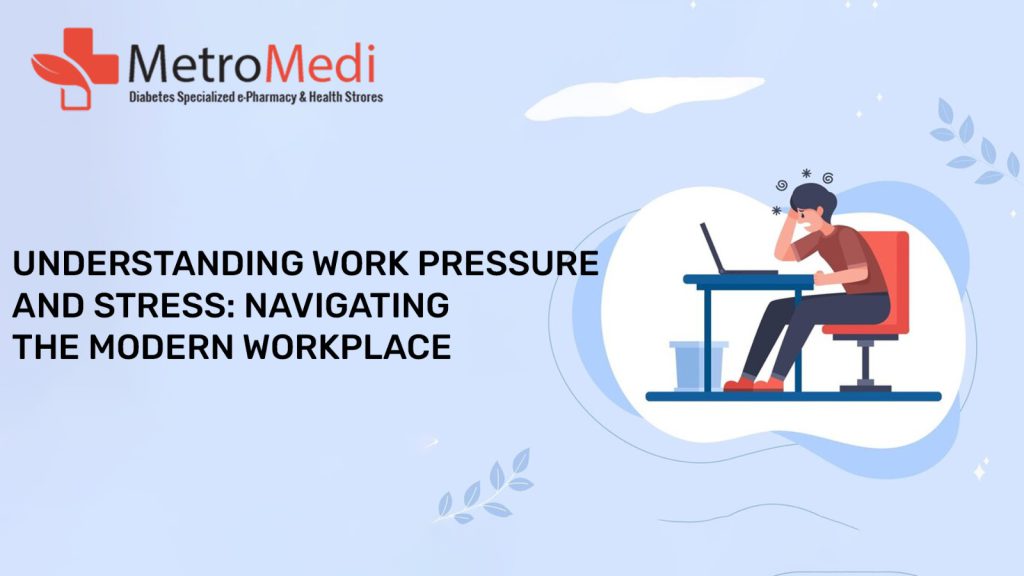
In today’s fast-paced work environment, many individuals find themselves grappling with work pressure and stress. As organizations strive for higher productivity, employees often face an increasing load of responsibilities, deadlines, and expectations. This blog aims to explore the causes of work-related stress, its impact on individuals, and effective strategies for managing and mitigating it, including the benefits of online counselling.
What is Work Pressure?
Work pressure refers to the demands placed on employees in their professional environment. This can include tight deadlines, long working hours, high-performance expectations, and a heavy workload. While a certain level of pressure can motivate individuals to perform better, excessive pressure can lead to significant stress, affecting both mental and physical health.
Causes of Work Pressure
- Increased Workload: Employees often juggle multiple tasks, leading to feelings of being overwhelmed. This can result from understaffing, unexpected projects, or the need to meet aggressive targets.
- Tight Deadlines: Time constraints can create a sense of urgency that increases stress levels. When deadlines are unrealistic or constantly shifting, it can lead to frustration and burnout.
- Lack of Control: Employees who feel they have little control over their work environment or decisions may experience heightened stress. Autonomy is crucial for job satisfaction and reducing anxiety.
- Poor Work-Life Balance: The blurring of boundaries between work and personal life can lead to chronic stress. With the rise of remote work, many find it challenging to disconnect from work after hours.
- Interpersonal Conflicts: Tensions with colleagues or supervisors can contribute significantly to work-related stress. A toxic work environment can exacerbate feelings of pressure and anxiety.
The consequences of work-related stress are far-reaching and can affect various aspects of life:
- Mental Health: Chronic stress can lead to anxiety, depression, and other mental health issues. Individuals may experience difficulty concentrating, mood swings, and a general sense of unhappiness.
- Physical Health: Prolonged exposure to stress can manifest physically, leading to headaches, fatigue, cardiovascular issues, and weakened immune responses.
- Productivity: While some pressure can boost productivity, excessive stress can have the opposite effect. It can lead to decreased motivation, lower quality of work, and increased absenteeism.
- Relationships: Stress can strain personal relationships as individuals may become irritable or withdrawn, affecting their ability to connect with family and friends.
Strategies for Managing Work Pressure and Stress
- Time Management: Prioritize tasks and set realistic deadlines. Use tools like to-do lists or project management apps to keep track of responsibilities and reduce feelings of being overwhelmed.
- Set Boundaries: Establish clear boundaries between work and personal life. Designate specific times for work and leisure, and communicate these boundaries with colleagues.
- Practice Mindfulness: Techniques such as meditation, deep breathing, and yoga can help reduce stress levels. Mindfulness practices encourage individuals to focus on the present moment, fostering relaxation and clarity.
- Seek Support: Don’t hesitate to reach out to colleagues, friends, or mental health professionals for support. Online counselling services, including online mental health counselling, can provide a safe space to discuss your feelings and experiences.
- Promote a Positive Work Environment: Encourage open communication and collaboration within the workplace. A supportive atmosphere can reduce stress and improve overall job satisfaction.
- Stay Active: Regular physical activity can significantly reduce stress. Exercise releases endorphins, which enhance mood and overall well-being. Incorporate movement into your daily routine, whether through walking, stretching, or sports.
- Learn to Say No: It’s essential to recognize your limits. Taking on too many responsibilities can lead to burnout. Don’t hesitate to decline additional tasks when your plate is full.
- Consider Online Counseling for Stress and Depression: If you find that work pressure is leading to overwhelming feelings of stress or depression, consider online stress counseling or online depression counseling. These services provide access to trained professionals who can help you develop coping strategies and address underlying issues.
Conclusion
Work pressure and stress are common challenges in the modern workplace. By understanding the causes and impacts of stress and implementing effective strategies for management, individuals can cultivate a healthier work environment. Emphasizing balance, support, and self-care is crucial in navigating the demands of work while maintaining well-being. Remember, addressing work-related stress through resources like online counseling services is not just beneficial for individual health; it contributes to a more productive and positive workplace for everyone.
